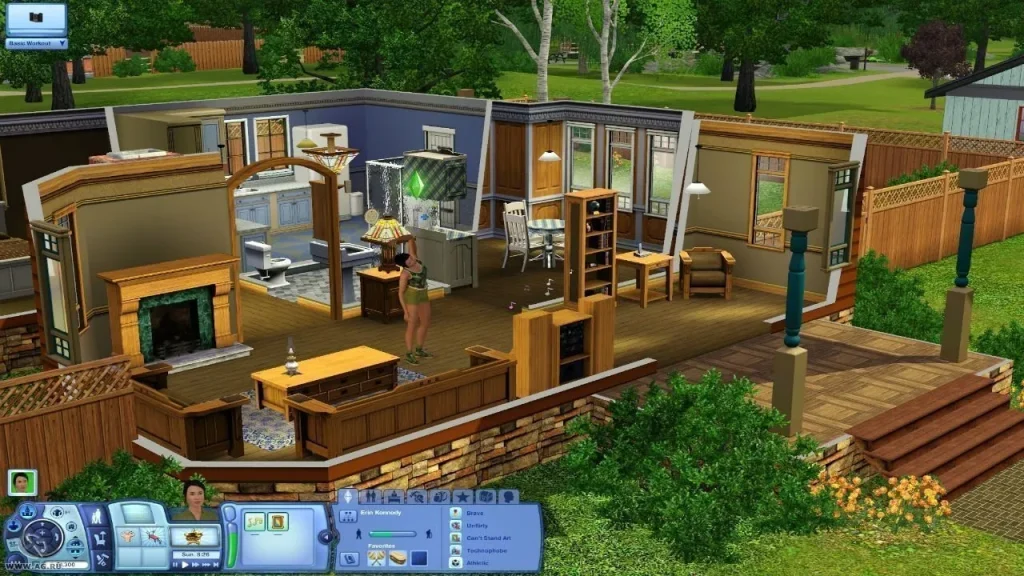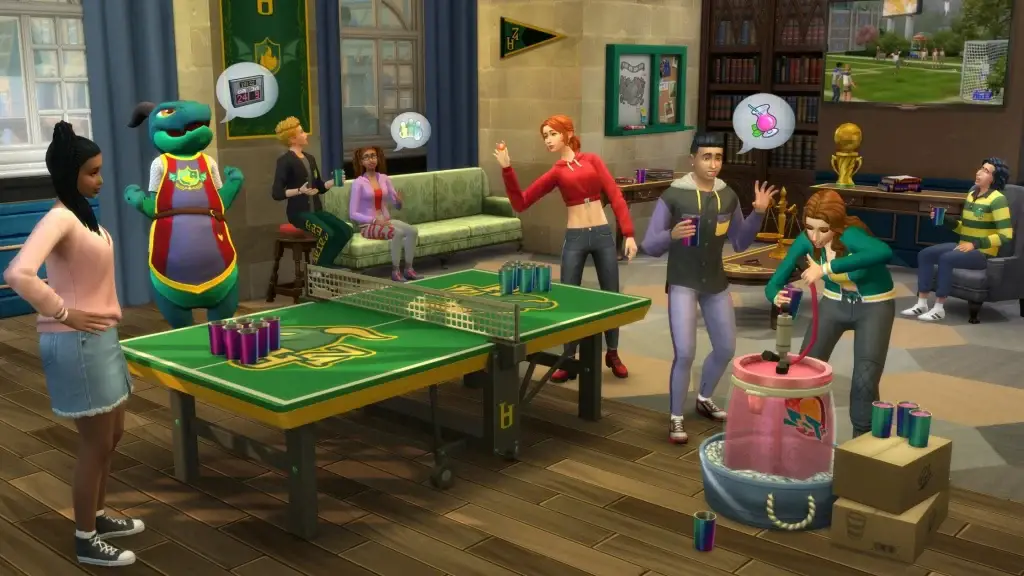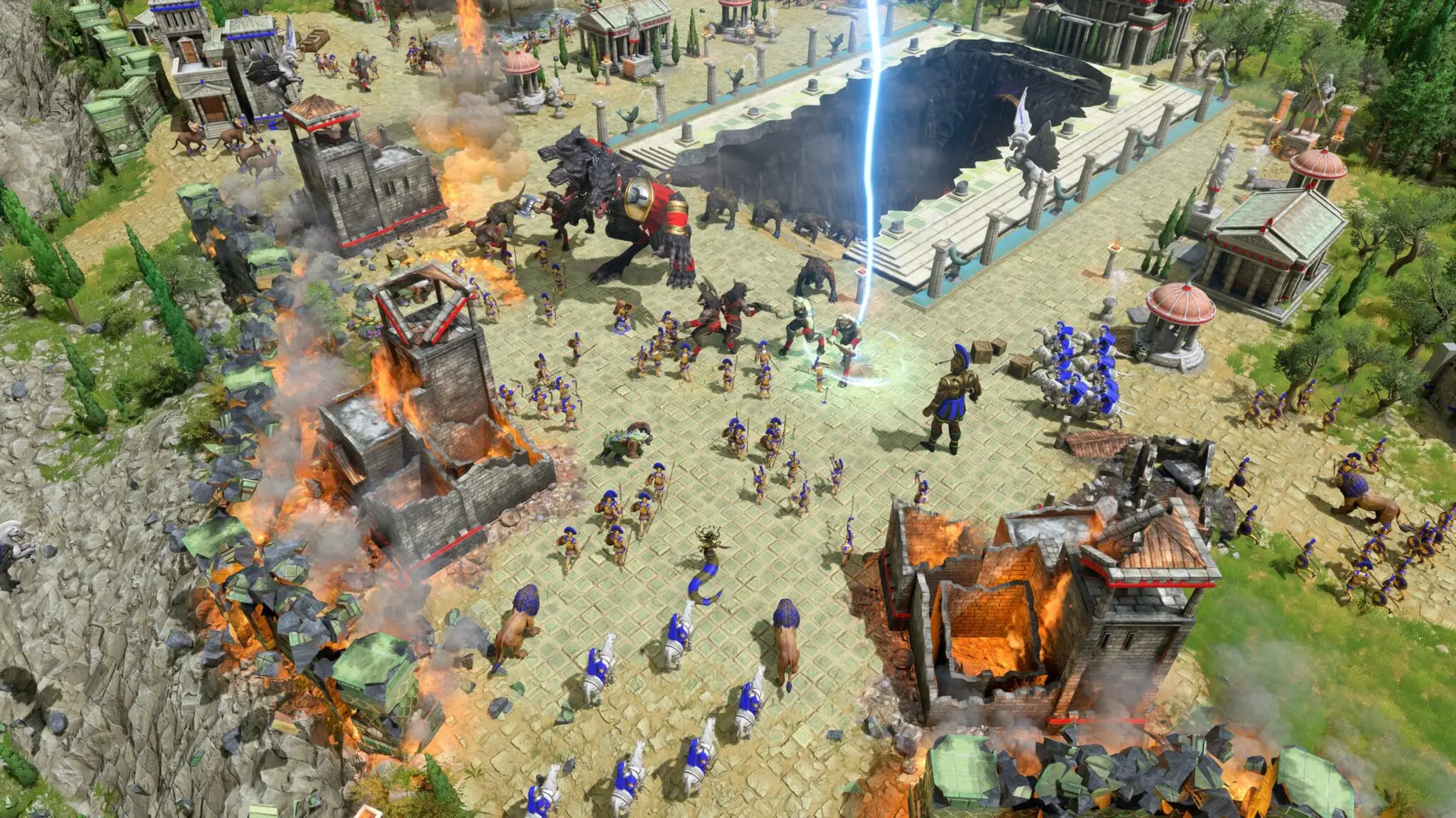The Sims is a cultural phenomenon that has changed the idea of interactive entertainment. The franchise has united millions of players around the world, providing the opportunity to create, manage and live a virtual life. The Sims game with each new version offered unique mechanics and ideas, turning each series into a global event. From the first experience of building a virtual house to complex social interactions in the fourth part – each contributed to the development of the genre. Let’s analyze the evolution of the legendary life simulator, starting from the origins.
The Sims 1 – the beginning of a great journey
The first part of The Sims was released in 2000 and instantly won the hearts of players. The game was centered on managing sims – characters who built houses, started relationships and performed everyday tasks. The first version of the Sims game provided users with unprecedented freedom of action:
- Building houses. Players created housing from scratch, choosing furniture, wallpaper and even the layout of rooms.
- Social interactions. Characters made friends, fell in love and fought, which became the basis of the genre.
- Time management mode. The ability to speed up time to speed up the completion of tasks.
Why The Sims 1 became a revolution?
The uniqueness of the project was in its openness to creativity. Participants could not only build, but also experiment with characters, create unusual scenarios. For example, someone turned a house into a prison, and someone into a paradise for parties.
Add-ons to the game and their influence
Add-ons such as “Hot Date” and “Livin’ Large” added new elements of gameplay. “Hot Date” opened the possibility of dating and walking around the city, and “Livin’ Large” brought unusual objects, including robots and exotic animals.
The Sims 2 – a leap in evolution
The second version of the Sims game, released in 2004, was a qualitative step forward. The concept included age stages, family trees and 3D graphics, which allowed for a more lively and realistic world to be created. Each character now had an individual story, which made the gameplay even deeper:
- Age stages. Characters went from babies to old people.
- Character memory. Sims remembered important events, which influenced their behavior.
- Appearance settings. The appearance of a full character editor with wide customization options.
3D graphics made it possible to rotate the camera and explore houses from any point of view. Desires and fears appeared, which added more strategy to the gameplay.
The most popular additions to the second version of the Sims game
 The additions to the Sims 2 were a real breakthrough, significantly expanding the basic mechanics of the game and offering players unique opportunities to interact with the world of Sims:
The additions to the Sims 2 were a real breakthrough, significantly expanding the basic mechanics of the game and offering players unique opportunities to interact with the world of Sims:
- Nightlife. The world of nightclubs, restaurants and romantic dates. Sims could go to parties, ride limousines and start relationships, finding new social connections. Dynamic lighting for night scenes was also added, making the game more atmospheric.
- Seasons. Introduced a change of seasons, weather, and new activities. In winter, Sims built snowmen and had snowball fights, planted plants in the spring, sunbathed on the beach in the summer, and harvested crops in the fall. Seasonal changes not only added realism, but also affected the everyday life of characters, making it more diverse.
- University. Gave the opportunity to send Sims to university. There they could choose specializations, attend lectures, and participate in student parties. Education influenced future careers and opened up additional opportunities for characters.
The Sims 3 — open world and freedom
In 2009, the series took a giant step forward with the advent of the open world. In the third version of the Sims game, players could already explore the entire city without loading screens. This added realism and depth to the gameplay:
- Open world. Characters moved freely between city districts.
- Character traits. The character trait system allowed you to create unique characters with different habits and preferences.
- Expanded construction options. The game added more tools for customizing houses.
Open world as a major breakthrough
Part gave the opportunity to participate in the life of the entire city, making every moment of interaction exciting. For example, characters could enjoy walks in green parks, attend themed events in the city center, or create a successful business right in their neighborhood.
The Sims 4 — emotions and detail
The fourth version of the Sims game, released in 2014, focused on the emotions of the characters. Now the Sims’ mood affected their actions and interactions with the world around them:
- Emotion system. Characters could feel happiness, anger, sadness, and even inspiration.
- Improved editor. The ability to change even the smallest facial features.
- Multi-story construction. The option to add basements and several floors.
The future of the franchise is the anticipated The Sims 5
The fifth version of the Sims game promises to be the most large-scale project of the franchise. According to rumors, the project will add multiplayer, which will allow users to interact with each other in real time.
What can The Sims 5 surprise?
The 5th part continues to fuel interest with its mystery. Official announcements are still scarce, but rumors and leaks already paint an exciting picture:
- Multiplayer at a new level. Players will be able to unite to create common projects, such as building virtual cities. The ability to organize joint events, such as weddings or parties, adds a new layer of social interaction.
- Realistic graphics. A transition to a more powerful graphics engine is expected. This includes improved textures, dynamic lighting, and animations that are as close to reality as possible. For example, even small details, such as the movement of curtains in the wind, promise to make the game even more alive.
- Deep customization. Users will have more tools to customize characters and objects. Expanding character settings and adding unique personality traits will make Sims even more unique.
- Social interactions. The developers promise the introduction of complex communication systems. Characters will be able to remember the details of conversations, and their emotions will directly depend on the success or failure of dialogues.
Rumors also suggest the integration of VR technologies, which will allow you to look at the world of Sims from a completely new angle.
Conclusion
 The Sims franchise remains the benchmark for the simulation genre. Each version of the Sims game brought something new, creating a unique experience for millions of players. And today it continues to be popular.
The Sims franchise remains the benchmark for the simulation genre. Each version of the Sims game brought something new, creating a unique experience for millions of players. And today it continues to be popular.
 en
en  de
de  ar
ar  es
es  nl
nl  hi
hi  fr
fr  it
it  pt
pt  el
el 









